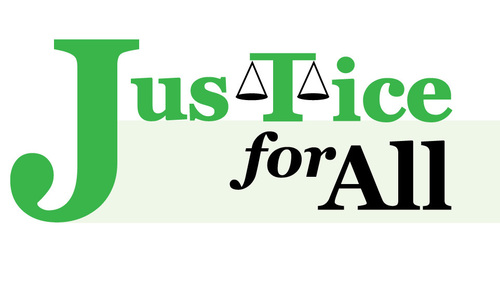General
Osinbajo Lauds DFID’s J4a Programme


By Walter Duru
The implementation of the Justice For All (J4A) programme, an initiative of the United Kingdom government’s Department for International Development (DFID), has been commended by Nigeria’s Acting President, Professor Yemi Osinbajo.
Mr Osinbajo thanked the UK government for sustaining its support to the country, saying the justice sector has recorded reforms as a result of the support.
The Acting President, while delivering a keynote speech at a close-out and valedictory programme of the Justice For All, held in Abuja on Thursday, also described the programme as well thought-out and impactful.
The Acting President, who spoke through his Chief of Staff, Mr Ade Ipaye, urged the DFID not to relent in its support to good governance and justice sector reforms in Nigeria.
“The J4a programme is well-thought out. Its effects are being felt. What we are working on now is to ensure that the initiatives of the programme are institutionalized in our systems. The J4a model is what we are following in our Police reforms today.
“The Case Management and Information Communication Technology (ICT) in use today in the Justice sector is a J4a initiative. We need to ensure that it is adopted in every part of the country. J4a supported the Police Complaint Response Unit and today, they are achieving results,” he said.
Speaking on sustainability, the Vice President stressed: “I hope the closure of the J4a will not be the end of support to the laudable initiatives.”
He commended the J4a team, led by Dr. Bob Arnot for what he described as their outstanding performance, urging them not to relent in their service to the nation.
Adding his voice, Executive Secretary, Presidential Advisory Committee against Corruption (PACAC), Professor Bolaji Owasanoye was full of praises for the J4A programme, describing it as exemplary.
“It supported a whole range of measures in the area of economic justice, notably the improvement of service delivery in commercial courts. Starting with a baseline survey on the progress of cases in commercial courts, needs assessment of those courts, capacity building for judges who preside over the courts, infrastructure support to improve service delivery such as the furnishing of the Fast Track Court Registry and the monthly progress monitoring, Lagos Judiciary improved incrementally from one level to another.”
“To ensure this worked seamlessly and is sustainable, the judiciary created a separate registry for fast track cases with the encouragement and financial support of J4A.”
Continuing, he gave credit of the early achievements recorded by the PACAC Committee to the support it got from the J4a Project.
“J4A recognized the importance of co-ordination and co-operation amongst justice sector institutions. It thus supported the creation of a platform through which regular engagement and interaction could talk place.
“This initiative in my view is a major legacy. I can say this now because PACAC borrowed from this model by recommending to government a high level inter agency platform for conversation on the anti-corruption issue. J4A, without doubt, has been of immense benefit to Nigeria in all of the thematic areas of focus.”
In his presentation on: J4a: The Journey, Achievements, Experiences, Lessons and Legacy, Portfolio Lead for Justice Security and Conflict in Sub Saharan Africa for the British Council, Dr. Bob Arnot explained that the programme was organized around four components: Policing and Security; Justice, Anti-Corruption and Cross-Sector Coordination.
Speaking on the scope and methodology of the project, Arnot explained: “the programme worked at federal level plus five focal states (Lagos, Kano, Kaduna, Enugu, Jigawa) & FCT. Models based upon best practice were to be replicated, disseminated and sustained; working in the formal and informal sectors.”
He further explained that the ultimate aim of the programme was to create: “a more capable, accountable, responsive and integrated justice sector that is fair, equitable and accessible with sustainable reform momentum creating growing user confidence and respect amongst Nigerians.”
On successes recorded by the Policing component, Arnot, a former National Programme Manager of the J4a, enumerated them to include: “Work in 7 states affected 44.8 million people by introducing Community-based Policing (CBP) in Model Police Stations (MPS); introduced 12 modern police stations with 177 interventions and 645 replications; engaged with more than 100 police divisions and trained over 5000 Police officers.”
“J4A states citizen’s satisfaction with police up from 40% in 2011 to 59% in 2012; a total of 776 VPS leaders trained in leadership skills and over 1000 operatives have been trained in conflict management skills”
In the Justice component, Arnot explains: J4A worked with 26 pilot Magistrates, Sharia and Customary Courts in 3 states (disposal time reduced by 30%) equal to saving over 900,000 days in court. Since 2012, nearly 1,400 Traditional Rulers in two states have been trained on human rights, dispute resolution and record keeping. It is estimated that over 400,000 citizens will have benefited from the traditional rulers’ enhanced skills.”
Speaking on achievements by the anti-corruption component, he says: “The EFCC, ICPC and CCB now have strategic plans being implemented to direct their longer term work; J4A supported the EFCC and ICPC to investigate, prosecute and recover the assets of corrupt persons. By March 2016, assets worth over 210 Billion Naira had been recovered. Over 700 anti-corruption agency operatives have been trained in investigative and prosecutorial skills. J4A training modules now delivered by anti-corruption agencies (ACA) Trainers and key anti-corruption legislation developed.”
Continuing, he stressed that: “Reformed Anti-Corruption Transparency Units (ACTUs) are now in 427 Ministries, Departments and Agencies (MDAs); Inter-agency cooperation and exchange of intelligence have been improved. Civil society groups and coalitions have been supported to increase oversight of the anti-corruption agencies and the government’s work on anti-corruption, as well as increased advocacy on stalled high profile corruption cases by Media/Civil Society actors through the Reporting Until Something Happens (RUSH) initiative.
Also speaking, J4a National Programme Manager, Danladi Plang outlined the programme’s achievements in providing justice for victims of sexual violence in the country.
“What we have tried to do is to provide justice for victims of sexual violence and their families. We did three major things in this regard. One is to provide facilities where victims can go and be treated; either by providing medication or counselling. The treatment is free of charge. Second, we increased the level of awareness of people on sexual violence. Next is in the area of training and capacity development for all stakeholders.”
The Programme’s anti-corruption Manager, Emmanuel Uche also expressed satisfaction with the achievements of the programme, describing them as remarkable.
“I am happy that the programme is a huge success. We have made the anti-corruption agencies more responsive and capable. Their level of engagement is back to the early days of their existence. We have supported government by strengthening institutional mechanisms of the anti-corruption agencies. We also strengthened the voice of the citizens. The J4a approach is holistic and has left a mark in the sands of history.”
The J4a Close-out event was attended by stakeholders from public institutions, Civil Society organisations and the media.
General
NISO Attributes Electricity Woes to Inadequate Gas Supply

By Adedapo Adesanya
The Nigerian Independent System Operator (NISO) has attributed the poor power supply facing a considerable number of Nigerians to inadequate gas supply to thermal power plants.
Business Post reports that epileptic power supply has plagued consumers in Lagos, Oyo, Abuja, and Osun, among others, this month, leading to worries. Also, some businesses have recorded losses due to the epileptic power supply in their areas.
In a statement posted on its X handle, NISO disclosed that average available generation on the national grid currently stands at about 4,300 megawatts (MW), with the low output primarily attributed to gas supply constraints.
The system operator noted that thermal power plants, which account for the dominant share of Nigeria’s electricity generation mix, require an estimated 1,629.75 million standard cubic feet (MMSCF) of gas per day to operate at optimal capacity. However, as of February 23, 2026, actual gas supply to the plants was approximately 692.00 MMSCF per day.
The available supply represents less than 43 per cent of the daily gas requirement, resulting in constrained generation output and reduced electricity allocation to Distribution Companies (DisCos).
NISO, which independently manages the nation’s electricity grid, explained that any disruption or limitation in gas supply directly affects available generation capacity and overall grid output, given the heavy reliance on thermal plants.
It added that when total system generation drops significantly, the operator is compelled to implement load shedding across the network while dispatching available energy in line with allocation percentages approved under the Multi-Year Tariff Order (MYTO) framework of the Nigerian Electricity Regulatory Commission (NERC), to maintain grid stability and prevent system disturbances.
While expressing regret over the inconvenience to electricity consumers and market participants, NISO said it is working closely with relevant stakeholders to restore full energy allocation once gas supply improves and generation capacity returns to normal levels.
General
EFCC Re-Arraigns ex-AGF Malami, Wife, Son Over Alleged Money Laundering

By Adedapo Adesanya
The Economic and Financial Crimes Commission (EFCC) has re-arraigned former Attorney-General of the Federation (AGF), Mr Abubakar Malami (SAN), his wife, Mrs Asabe Bashir, and son, Mr Abdulaziz Malami, on money laundering charges.
They were brought before Justice Joyce Abdulmalik of the Federal High Court in Abuja, following the re-assignment of the case to the new trial judge.
Upon resumed hearing, EFCC’s lawyer, Mr Jibrin Okutepa (SAN), informed the court that the matter was scheduled for defendants’ re-arraignment.
“The matter is coming before your lordship this morning for the very first time. I will be applying for the plea of the defendants to be taken,” he said.
Mr Okutepa equally applied that the sums listed in Counts 11 and 12 be corrected to read N325 million instead of N325 billion for Count 11, and N120 million instead of N120 billion for Count 12.
When it was not opposed by the defence lawyer, Mr Joseph Daudu (SAN), Justice Abdulmalik granted the oral application by Mr Okutepa.
The defendants, however, pleaded not guilty to the 16 counts preferred against them by the anti-graft agency bordering on money laundering.
Justice Obiora Egwuatu had, on February 12, withdrawn from the case shortly after the civil case filed by the EFCC was brought to him.
The case was formerly before Justice Emeka Nwite, who sat as a vacation judge during the Christmas/New Year break.
After the vacation period, the CJ reassigned the cases to Justice Egwuatu, who had now recused himself, before it was reassigned to Justice Abdulmalik.
The former AGF, his wife, and son were earlier arraigned before Justice Nwite on December 30, 2025.
While Malami and his son were remanded at Kuje Correctional Centre, Asabe was remanded at Suleja Correctional Centre before they were admitted to N500 million bail each, on January 7, with two sureties each in the like sum.
General
INEC Shifts 2027 Presidential, N’Assembly Elections to January 16

By Adedapo Adesanya
Nigeria will hold next year’s presidential and National Assembly elections a month earlier than planned, after the Independent National Electoral Commission (INEC) revised the polling schedule.
The elections will be held on January 16, instead of the previously announced date of February 20, INEC said in an X post, signed by Mr Mohammed Kudu Haruna, National Commissioner and Chairman, Information and Voter Education Committee.
There were also changes to the Governorship and State Houses of Assembly elections initially fixed for Saturday, March 6 2027, in line with the Electoral Act, 2022, have now been moved to Saturday, February 6, 2027.
The electoral commission said the changes were caused by the enactment of the Electoral Act, 2026 and the repeal of the Electoral Act, 2022, which introduced adjustments to statutory timelines governing pre-election and electoral activities.
“The Commission reviewed and realigned the schedule to ensure compliance with the new legal framework,” it said.
INEC said party primaries (including resolution of disputes) will commence on April 23, 2026 and end on May 30, 2026, after which Presidential and National Assembly campaigns will begin on August 19, 2026, while Governorship and State Houses of Assembly campaigns will begin on September 9, 2026.
It noted that campaigns will end 24 hours before Election Day, and political parties have been advised to strictly adhere to the timelines.
INEC also stated it will enforce compliance with the law.
The electoral body also rescheduled the Osun Governorship election which was earlier scheduled for Saturday, August 8 2026, by a week to Saturday, August 15, 2026.
INEC noted that some activities regarding the Ekiti and Osun governorship elections have already been conducted, and the remaining activities will be implemented in accordance with the Electoral Act, 2026.
Speaking at a news briefing in Abuja two weeks ago, the chairman of INEC, Mr Joash Amupitan, expressed the readiness of the commission to conduct the polls next year.
The timetable issued by the organisation for the polls at the time came when the federal parliament had yet to transmit the amended electoral bill to President Bola Tinubu for assent.
Later that week, the Senate passed the electoral bill, reducing the notice of elections from 360 days to 180 days, while the transmission of results was mandated with a proviso.
-

 Feature/OPED6 years ago
Feature/OPED6 years agoDavos was Different this year
-
Travel/Tourism10 years ago
Lagos Seals Western Lodge Hotel In Ikorodu
-

 Showbiz3 years ago
Showbiz3 years agoEstranged Lover Releases Videos of Empress Njamah Bathing
-

 Banking8 years ago
Banking8 years agoSort Codes of GTBank Branches in Nigeria
-

 Economy3 years ago
Economy3 years agoSubsidy Removal: CNG at N130 Per Litre Cheaper Than Petrol—IPMAN
-

 Banking3 years ago
Banking3 years agoSort Codes of UBA Branches in Nigeria
-

 Banking3 years ago
Banking3 years agoFirst Bank Announces Planned Downtime
-

 Sports3 years ago
Sports3 years agoHighest Paid Nigerian Footballer – How Much Do Nigerian Footballers Earn











